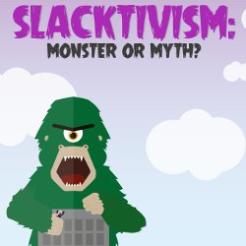People who share a fundraising page on social media are four times more likely to donate than those who don’t, and those that share using a mobile device are seven times more likely to give, according to a report by JustGiving.
This week the online fundraising platform published a paper Slacktivism: monster or myth in which it discussed whether there was any truth in a recent backlash against viral social fundraising campaigns, including the #nomakeupselfie and #icebucketchallenge that took place last year.
The report said many people use the pejorative term "slactivism" to suggest that actions like sharing and liking campaigns and other people's fundraising activity, and signing petitions on social media, achieved little, and also prevented people who did so from becoming involved in more effective real-world social action.
By analysing “millions” of transactions made on the platform it has calculated that on average each time a fundraising effort is shared on Facebook it is worth $8 to the charity.
“We’ve seen that slacktivism has been observed as a meaningless action both in looking at high-profile Facebook campaigns and in small scale academic studies, but JustGiving data proves quite the opposite,” the report concludes.
While it points out that the most successful campaigns were started by individuals rather than charities, it said: “Slacktivism is not a monster eating away at charities’ time and resource. The evidence clearly shows that there is huge value in charities investing time and resources into preparing for their social fundraising meme moment.”
JustGiving also tested different wording for the text that appears on screen once people have made a donation. By changing it from “inspire more people to give – share your donation”, to “help your friend raise even more money by sharing their page”, the proportion of people who shared increased by 28 per cent.
The report said: “This suggests that charities could encourage more micro participation through social media by demonstrating how that participation makes a real difference.”
In November 2013 a study by the University of British Columbia Sauder School of Business tested the propensity of people to donate or volunteer, having previously made a token gesture of support, in either a public or a private way and found that those who did so publicly, for example on social media, were less likely to donate.
JustGiving’s own paper references a study of the Save Darfur Facebook page, active between 2007 and 2010, which found that even though there were 1.2 million people signed up to the page the vast majority did not donate or recruit others to the cause, and has since been used as evidence that “Facebook conjured an illusion of activism rather than facilitating the whole thing”.
But JustGiving suggests that people and social media has matured. It said: “In 2007 Facebook was only three years old, and Twitter was just a year old. With hindsight, this lack of recruiting friends to the cause, or donating, looks less surprising. Usage of these platforms had yet to reach a tipping point.”








